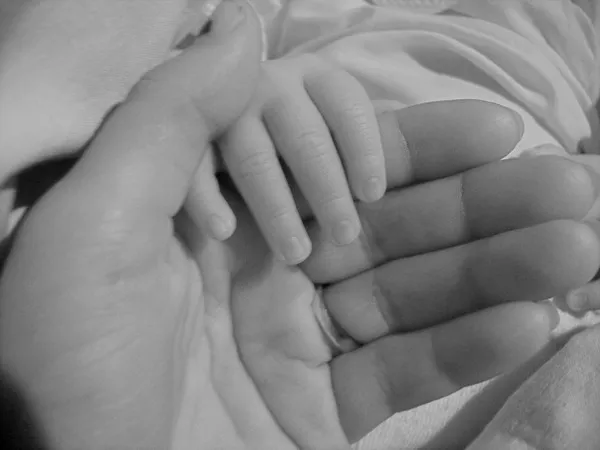In the fast-paced world of education, professionals continually seek ways to make a lasting impact on young minds. Early childhood education is a crucial field that plays a pivotal role in molding the future generation. If you’re pondering the question, “What is an early childhood education degree?” or are considering pursuing this path, you’ve come to the right place. In this comprehensive guide, we’ll delve into the intricacies of an early childhood education degree, exploring the key aspects that make it a vital choice in the realm of education.
1. Defining Early Childhood Education: The Cornerstone of Future Success
Early childhood education, often abbreviated as ECE, refers to the study and practice of nurturing the cognitive, social, and emotional development of young children, typically from birth to around 8 years of age.
Within this broad field, you’ll find various degree options tailored to meet the diverse needs of students and educators. These include associate’s degrees, bachelor’s degrees, and even advanced degrees like master’s programs in early childhood education.
2. Early Childhood Education Degree Types: Your Path to Success
2.1 Associate’s Degree in Early Childhood Education
For those just starting their journey in early childhood education, an associate’s degree is an excellent entry point. This two-year program provides a foundational understanding of child development, teaching methods, and classroom management. Graduates with this degree often find rewarding careers as teaching assistants, daycare providers, or preschool teachers.
2.2 Bachelor’s Degree in Early Childhood Education
If you aspire to become a lead teacher, preschool director, or curriculum specialist, a bachelor’s degree in early childhood education is your ideal choice. This four-year program goes more in-depth, covering child psychology, curriculum planning, and educational theory. Graduates are equipped with the skills and knowledge needed to create engaging learning environments for young children.
2.3 Master’s Degree in Early Childhood Education
For educators who want to reach the pinnacle of their careers, a master’s degree in early childhood education is a significant investment. This advanced program delves deep into educational research, policy development, and leadership skills. Graduates often become education consultants, program directors, or college professors.
3. Early Childhood Education Degree Benefits: A World of Opportunities
3.1 Making a Difference in Children’s Lives
One of the most compelling reasons to pursue an early childhood education degree is the opportunity to make a profound impact on the lives of young children. Research has consistently shown that quality early childhood education significantly influences a child’s cognitive and social development, setting the stage for future academic success.
3.2 High Demand for Qualified Professionals
The demand for early childhood educators is on the rise. With a growing focus on the importance of early education, schools, daycares, and preschools are continually seeking qualified professionals. This results in a stable and rewarding job market for those with early childhood education degrees.
3.3 Competitive Salaries and Career Growth
Earning a degree in early childhood education can also be financially rewarding. Depending on your level of education and experience, salaries can be quite competitive. Moreover, the potential for career growth is substantial, as opportunities to take on leadership roles within educational institutions abound.
4. Challenges in Early Childhood Education: A Roadmap to Success
4.1 Ensuring Quality Education
In early childhood education, ensuring the provision of high-quality education is paramount. This requires educators to stay updated with the latest teaching methods, incorporate innovative techniques, and adapt to the individual needs of each child.
4.2 Parental Involvement
Effective early childhood education often involves close collaboration with parents. Educators should communicate regularly with families, offering insights into a child’s progress and providing resources for parents to continue learning at home.
4.3 Advocacy and Policy
Advocating for early childhood education policies and funding is essential. Educators and organizations should actively participate in shaping policies that support early education initiatives, ensuring the availability of resources and quality programs.
5. The Future of Early Childhood Education: A Bright Horizon
5.1 Embracing Technology
In today’s digital age, technology has become an integral part of education. Early childhood educators must adapt to incorporate technology into their teaching methods, enhancing children’s learning experiences.
5.2 Inclusivity and Diversity
Promoting inclusivity and diversity in the classroom is crucial. Early childhood education should reflect the diverse backgrounds and cultures of the students, fostering an environment where every child feels valued and accepted.
6. Conclusion: Shaping the Future, One Child at a Time
In conclusion, the world of early childhood education is a dynamic and rewarding field that opens doors to a myriad of opportunities. Whether you choose an associate’s, bachelor’s, or master’s degree in early childhood education, your journey in this profession can make a lasting impact on young minds. As you embark on this path, remember that the future of our children lies in the hands of dedicated educators, and with your commitment, you can truly shape the future, one child at a time.
In a world that values the education and well-being of our youth, early childhood education is not just a career but a calling, and it is one that promises a fulfilling and impactful journey.


